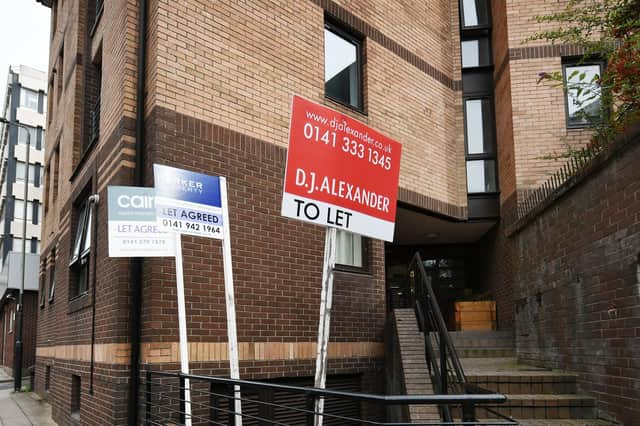It’s time to be honest – the glass is half-empty - David Alexander comment


The first is that millions of beach-loving Brits, desperate to get away to sunnier climes, will be prepared to pay a hefty premium for a 14-night stay in the Med or somewhere further afield. The second is that a large spike in unemployment will substantially reduce the conventional customer base and that operators will struggle to attract bottoms onto seats.
Turning to the residential property sector, I am fairly sure the first theory will not apply. True, a huge pent-up level of demand will have built up during the five weeks and more of lockdown. However, buying a home is a much more significant commitment than taking a holiday, and I simply cannot see a sudden surge in property transactions once things return to normal (or near to normal).
Advertisement
Hide AdAdvertisement
Hide AdThere is a debate about whether, following lockdown, the economy will recover in the shape of a “V” (quickly and sharply) or a “U” (slower return to growth but recovery nonetheless). I would depict the residential property market as an “L” followed, much later, by an “I” (extended period at the bottom with no price or rental growth before recovery begins).
In Scotland, many buyers will have found themselves committed to a purchase just as lockdown was about to change their prospects overnight. However, in cases where completion of missives had not taken place, anticipated transactions will have fallen through. To this one must add the substantially greater number of people who had been intending to view properties this spring with the intention of a summer move but who have now put their plans on hold.
Some will , say, add an extension. Others – worried about taking on more debt – will simply buckle down and make do with what they already have. This will obviously have a debilitating effect on property values and the best the market can hope for at the moment is a period of zero growth, although it would not surprise me if there is a (hopefully, temporary) period of house-price deflation.
Big difference
Some have compared today’s situation with the aftermath of the financial crash of 2008 – but there is one big difference. Back then, thousands found themselves in negative equity and unable to sell their homes, but their employment prospects (unlike today) were still relatively safe. They could, therefore, “ride out the storm” although there were also casualties along the way.
However, one similarity with post-2008 may be a return of the “reluctant landlord” – people who, for various unavoidable reasons, had to buy another property even if the one they had lived in remained unsold. With no takers for the “old” property or buyers unwilling to pay a price which the vendor thought was sufficient, the latter reluctantly decided to let out the latter. But will there be the same level of demand to rent such properties this time round?
At present, many of our tenants are simply unable to pay their rent, although to their credit most landlords have responded positively by offering to delay or cap payments and even offer rental holidays. But once normality returns, tenants are likely to have more bargaining power because the law of supply and demand will have tilted in their favour.
During any normal month, we have around 100 properties available to rent, but this has shot up to 350, thanks largely to the collapse of the Airbnb market. The leisure/short-stay sector is not going to recover any time soon; add to this the likelihood of a rise in unemployment, it does seem inevitable there will be too many landlords and not enough tenants that can afford accommodation. Consequently, rents will stall or, as seems even more likely, fall.
I would like to draw a rosier picture. But as things stand the glass is half-empty rather than half-full and property professionals would not be doing their clients or the wider public any favours by pretending otherwise.
David Alexander is MD of DJ Alexander
A message from the Editor:
Advertisement
Hide AdAdvertisement
Hide AdThank you for reading this story on our website. While I have your attention, I also have an important request to make of you.With the coronavirus lockdown having a major impact on many of our advertisers - and consequently the revenue we receive - we are more reliant than ever on you taking out a digital subscription.Subscribe to scotsman.com and enjoy unlimited access to Scottish news and information online and on our app. With a digital subscription, you can read more than five articles, see fewer ads, enjoy faster load times, and get access to exclusive newsletters and content. Visit www.scotsman.com/subscriptions now to sign up.
Our journalism costs money and we rely on advertising, print and digital revenues to help to support them. By supporting us, we are able to support you in providing trusted, fact-checked content for this website.
Joy Yates
Editorial Director
Comments
Want to join the conversation? Please or to comment on this article.